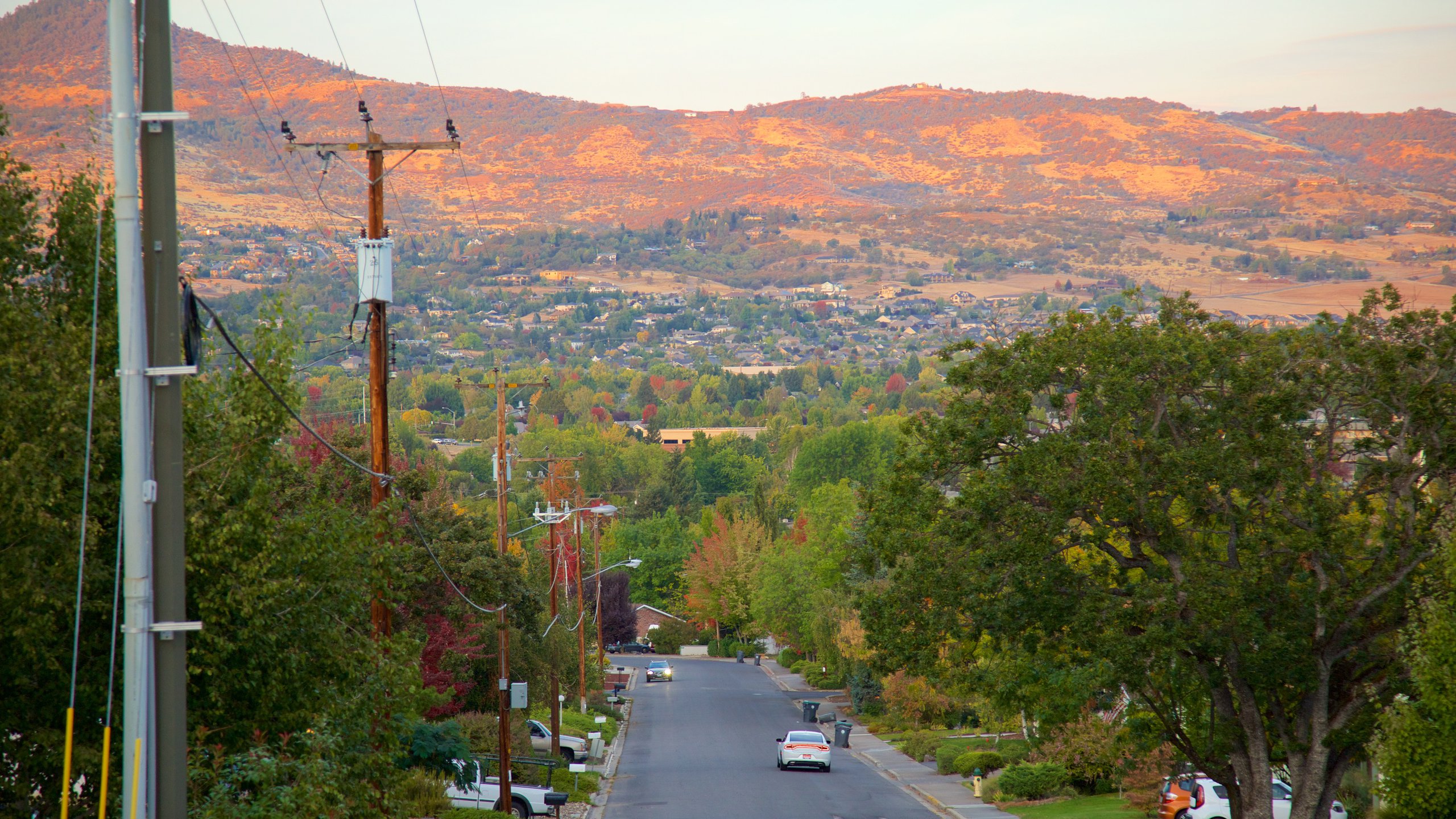Living in Medford Oregon presents a compelling blend of natural beauty, robust employment opportunities, and a thriving community. This guide delves into the multifaceted aspects of life in this Southern Oregon city, exploring everything from the local housing market and job prospects to recreational activities and the overall cost of living. We’ll examine the advantages and disadvantages of residing in Medford, providing a balanced perspective for those considering a move or simply curious about this charming city.
From the diverse housing options, including single-family homes and apartments, to the thriving job market fueled by key industries, Medford offers a unique lifestyle. We’ll analyze the local culture, explore the abundant outdoor recreational opportunities, and assess the quality of education and healthcare systems. A detailed look at transportation options, climate, and environmental considerations completes the picture, giving a holistic view of what it truly means to live in Medford, Oregon.
Employment Opportunities in Medford, Oregon: Living In Medford Oregon
Medford, Oregon, offers a diverse range of employment opportunities, driven by a mix of industries catering to both local needs and regional economic drivers. The job market, while influenced by national trends, maintains its own unique characteristics shaped by the city’s geographic location and economic strengths.
Major Industries and Employers in Medford
Several key sectors contribute significantly to Medford’s employment landscape. Understanding these dominant industries provides insight into the types of jobs available and the overall health of the local economy.
- Healthcare: Rogue Regional Medical Center is a major employer, providing a wide array of healthcare jobs, from nursing and medical technology to administrative and support roles. Other clinics and healthcare providers in the area also contribute significantly to this sector.
- Education: Southern Oregon University (SOU) employs a substantial number of faculty, staff, and administrators. The presence of K-12 schools also creates consistent demand for educators and support personnel.
- Retail and Hospitality: Medford’s retail sector, encompassing both large chain stores and local businesses, offers numerous positions in sales, customer service, and management. The hospitality industry, fueled by tourism, provides jobs in restaurants, hotels, and related services.
- Government: City, county, and state government agencies employ a considerable workforce in Medford, offering opportunities in public administration, law enforcement, and other public service roles.
- Agriculture and Forestry: Given its location in Southern Oregon, Medford benefits from employment opportunities related to agriculture and forestry, though this sector may exhibit seasonal fluctuations.
Job Market Outlook in Medford, Living in medford oregon
Projected growth areas in Medford’s job market align with national trends, yet certain sectors show particular promise.The healthcare sector is anticipated to experience continued growth, driven by an aging population and increasing demand for healthcare services. The tech industry, while not as dominant as in larger metropolitan areas, shows potential for expansion, particularly in areas supporting remote work opportunities.
The tourism and hospitality sectors are expected to fluctuate with seasonal changes but remain significant contributors to employment.
Average Salary Ranges for Various Professions in Medford
Precise salary data for specific professions in Medford requires consulting specialized resources like salary surveys or job boards. However, it’s generally understood that salaries in Medford are often lower than in major coastal cities, reflecting the overall cost of living. For example, while a registered nurse might earn a higher salary in a larger metropolitan area, the cost of living in Medford may offset that difference.
Similarly, teaching positions, while offering competitive benefits packages, might have slightly lower base salaries compared to some other regions. Detailed salary information is best obtained from current job postings and salary comparison websites.
Unemployment Rate in Medford Compared to State and National Averages
Medford’s unemployment rate fluctuates, mirroring national and state trends. To obtain the most current and accurate data, one should consult official sources such as the Bureau of Labor Statistics (BLS) or the Oregon Employment Department. Direct comparison requires accessing these regularly updated statistics, as the figures are subject to change.
Transportation and Commute in Medford, Oregon

Medford, Oregon, offers a range of transportation options, though its system is smaller than that of larger metropolitan areas. Understanding the city’s transportation infrastructure is crucial for anyone considering relocation or visiting. The ease of commuting varies depending on the chosen mode of transport and the specific location within Medford.
Public Transportation in Medford
Medford’s public transportation system primarily relies on the Rogue Valley Transportation District (RVTD) bus network. RVTD operates a fleet of buses covering various routes throughout the city and surrounding areas. While the system provides essential service, the frequency of buses can be limited, especially during off-peak hours and on weekends. Riders should consult the RVTD schedule for specific route information and times.
The system is generally considered adequate for those living within close proximity to bus routes, but less convenient for those residing in more outlying areas.
Traffic Patterns and Commute Times in Medford
Medford experiences typical rush hour congestion, particularly during weekday mornings and evenings along major thoroughfares such as Highway 99 and Crater Lake Avenue. Commute times can vary significantly depending on the origin and destination, as well as the time of day. While generally shorter than those in larger cities like Portland, delays are possible during peak traffic periods.
Construction projects can also occasionally impact commute times. For example, construction on the I-5 corridor in recent years has caused significant delays for commuters traveling between Medford and nearby communities.
Alternative Transportation Options
Medford is relatively flat, making it suitable for cycling and walking, particularly within certain neighborhoods. Dedicated bike lanes and paths are present in some areas, but their extent is limited. Many residents use bicycles for shorter commutes or recreational purposes. Walking is a viable option for those living within close proximity to their workplaces or destinations, but the distance can be prohibitive for longer commutes.
The city’s overall walkability score is moderate, meaning it’s suitable for some, but not all, commutes.
Comparison to Other Oregon Cities
Compared to larger Oregon cities like Portland or Eugene, Medford offers a significantly less complex and less extensive public transportation system. Commute times in Medford are generally shorter, but the range of options is more limited. Portland boasts a robust light rail system and extensive bus network, while Eugene has a more developed bus system than Medford. However, Medford’s smaller size and generally lower population density contribute to less severe traffic congestion compared to these larger metropolitan areas.
Ultimately, the decision of whether or not to live in Medford, Oregon, is a personal one. However, this comprehensive overview highlights the many factors prospective residents should consider. From the affordability of housing and the diverse job market to the abundance of outdoor recreation and the welcoming community, Medford offers a unique and appealing lifestyle for those seeking a balanced and fulfilling experience in a picturesque setting.
Weighing the pros and cons presented here will help you determine if Medford is the right fit for your individual needs and preferences.
When investigating detailed guidance, check out armed forces vacation club cruises now.



